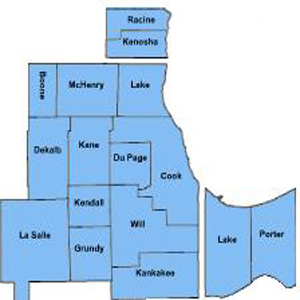From the Reluctant Xtian: Five Phrases Christians Should Not Say

Humans curse. A lot. But are theses among the phrases a Christian should not say in today’s world?
There are phrases Christians should not say, but it’s not what you think a pastor would complain about.
By Timothy Brown
(This is an abridged post originally appearing on ReluctantXtian. For the full post, click here.)
Sometimes I curse. It surprises people to hear that pastors sometimes curse. But really that’s all I can do sometimes. When you see terrible tragedy where you have absolutely no response other than sadness and despair, cursing happens - because you can do nothing else.
Pastors sometimes curse. Christians sometimes curse.
And, really, I hear things slip from Christian mouths with reckless abandon that I believe are far worse than curse words. Here are just five phrases a Christian should not say:
“That’s not Christian.”
I’ve heard this a lot. I once told a person that I meditated. They responded, “Well, that’s not Christian, you know.”
See, the problem with that line of thinking is that it narrows what can be identified with living a life in Christ. Rob Bell does a great job in his book, Velvet Elvis, on dissecting the danger in turning the word “Christian” from a noun (as it’s used in the Bible) into an adjective. In the noun form, a Christian is a follower of Christ. In the adjective form, it describes an action.
For those questioning or skeptical of faith, it erects another barrier, and further narrowly defines who is in or out of a relationship with God. What if someone were to say, “It’s unchristian to make that amount of money?” Or “It’s unchristian to have a house that large because you really don’t need that much space?”
We should ban Christian as an adjective, we can’t use it with any consistency.
“I love the sinner but I hate the sin.”
The problem that I have with this phrase is that it assumes that sin is a specific action that is done and can be undone. If that’s the case, name the specific action you hate.
“I love you, Tommy, but I don’t like it when you break my glasses.”
But really I haven’t heard this phrase used that way. I’ve only heard it used when people are talking about identity.
“I love gay people, I just hate that they act on their homosexual orientation.”
There we go. There’s an honest and unhelpful statement.
It’s unhelpful because you can’t love me apart from my sexuality. I really don’t think you can. It’s part of what makes me who I am even if it’s not the whole of my definition. So if you were to say to me “I love you but I hate that you’re heterosexual,” I would probably stop listening right then and there. You can’t love me and yet hate an essential part of me. This phrase is disingenuous.
“You need to surround yourself with some good Christian people.”
I once had a well-meaning friend tell me this when I was trying to sort out a problem. I think they were suggesting that I seek faith-based advice. I understand that sentiment. One of the problems with this sort of thinking is that you may begin to think that is all there is worth seeking out.
As a pastor people want me to have office hours at church, but I can’t all the time. If I don’t go to the coffee house a couple times a week I suffocate in my bubble. I need diversity because it is only in diversity where my thoughts, beliefs and ideas are challenged. And really if I only see Christians all the time I’m a pretty crappy pastor.
It is narrow to believe that somehow surrounding yourself with only one worldview will help you see the world better.
“You just have to do God’s will”
I am utterly suspicious of people who claim to know the specific will of God. I’m even more suspicious of people who claim this wish is to have us be in a relationship with God.
In the abstract, I get what they’re saying. I think God does desire for humanity to live in shalom with it’s creator. But to claim that this will takes precedence over God’s desire to have humanity live in shalom with one another, with the environment, and with other creation is, I think, short-sighted.
We run into real problems when we begin to think this with regard to specific situations.
And this leads me to the number one:
“It’s all in God’s plan.”
That you lost your baby. That your sister was murdered. That you got cancer. That your life is in shambles. I really can’t think of a worse thing to say; especially when someone is in pain.
We want to give solace; to promise that there is a purpose behind madness. But, if there is one thing the cross shows us definitively it’s that God takes the pain in the world and makes resurrection. We should not think that this means that God makes the world’s pain or the specific pain in a person’s life. This is an important distinction.
One of the reasons I left faith for a while was because I had heard too many times that God was flipping switches on people: causing children to die, cancer to spread, poverty to happen, etc.
I’m a reluctant Christian at times because I think that those who call themselves Christian don’t think enough about their words. Frankly, I wish they’d just curse more.
Rev. Timothy Brown is the pastor at Luther Memorial Church of Chicago in the Lincoln Square neighborhood. He blogs regularly at reluctantxtian.wordpress.com.
Justin Shimko
Latest posts by Justin Shimko (see all)
- Corage: Stepping Into My Power II - Change or Opportunity? - October 17, 2014
- Corage: Stepping Into My Power, Part I - Happy Birthday - October 10, 2014
- Corage: Up on the Roof - October 8, 2014


 Follow
Follow





